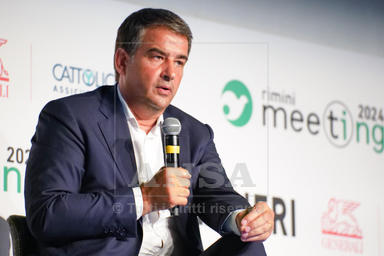“`html
Brussels – The stalemate in assessing the hearings of the six vice-presidents of the new EU Commission was the defining topic of a press conference by the EU delegation of the Austrian Social Democrats on Wednesday in Brussels: For SPÖ delegation leader Andreas Schieder, “something broke last night.” The ball is in the court of the European People’s Party (EPP): “We don’t know how to proceed.” According to parliamentary sources, it is currently unclear when the assessment will take place.
Schieder accuses EPP Chairman Manfred Weber of a “domestic political power play.” On Tuesday, it was decided to approve the six top positions of the new Commission “as a package,” rather than individually, as is customary for other Commission members, after each hearing before the responsible committees of the EU Parliament. The main sticking point is whether the center-left factions will approve the controversial Italian Raffaele Fitto from Prime Minister Giorgia Meloni’s far-right party Fratelli d’Italia for one of the influential vice-president positions.
The Spanish social democrat Teresa Ribera, nominated as vice-president for competition and green and digital transformation, was sharply attacked by conservative MEPs during her hearing: She was accused of her government failing to warn the population in time about the devastating floods in Spanish Valencia in October. SPÖ EU parliamentarian Evelyn Regner was shocked by the “tone” with which Ribera was attacked, “as one knows from the internet,” it had “a different quality.”
For Regner, her Spanish party colleague is “capable, she has a plan.” The Austrian sees a “paradigm shift” in the 2024 hearings: “In the past, it was the EU Commission against the EU Parliament, with the Parliament flexing its muscles.” This time, the “party families are trying to urinate on the other factions.” For delegation leader Schieder, it’s not just about “Fitto-Ribera.” Commission President Ursula von der Leyen made many promises before her re-election, and not all can now be kept.
“The EPP is leaning more and more to the right,” warns the social democrat. This is the “basis for the next five years.” He wonders how “pro-European cooperation can look in the future.” The Social Democrats are “for cooperation, but not at any price.” That the new EU Commission can start on December 1 has a 50 percent probability for Schieder.
“We support the new EU Commission starting its work on December 1 as scheduled. With Ribera, the Social Democrats have placed the biggest stumbling block on the way to the next EU Commission at the European level. There are still open questions to clarify. When the SPÖ accuses our EPP faction leader Manfred Weber of being responsible for the delays in the formation of the new Commission, it goes nowhere,” says Reinhold Lopatka, ÖVP delegation leader in the European Parliament, according to a statement.
For the EU Parliament’s vote on the entire von der Leyen II Commission to take place as planned at the plenary session in the last week of November in Strasbourg, all 26 Commission members must receive the green light from parliamentary committees by November 21 at the latest, according to parliamentary sources. On this day, the “Conference of Presidents,” which includes the faction leaders of the EU Parliament parties, meets. They then put the final vote on the agenda of the plenary session. (13.11.2024)
“`
 go to the original language article
go to the original language article
